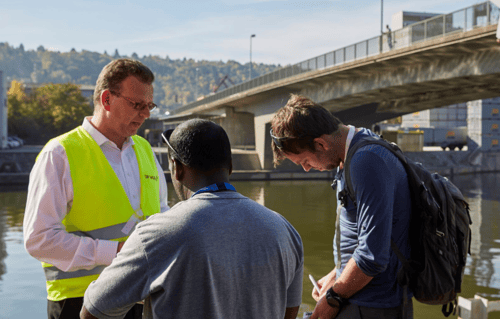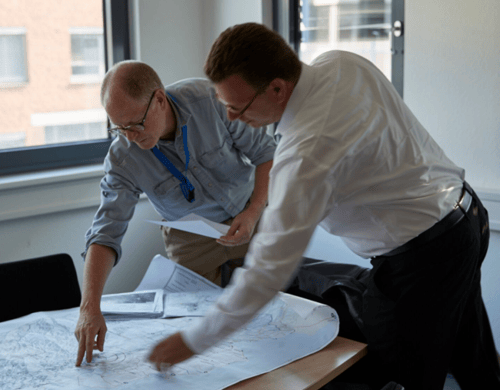DP WORLD SUPPORTS THE LOGISTICS CLUSTER’S EMERGENCY RELIEF TRAINING
18 October 2017
DP World, a leading enabler of global marine and inland trade, is helping to support the Logistics Cluster’s emergency relief training efforts. Led by the United Nations World Food Programme, the Logistics Cluster is a coordination mechanism activated in the wake of a major natural disaster or humanitarian crisis to address logistics gaps and to ensure, through coordination, information management and access to common logistics services, an efficient and effective emergency response.

When called on by the Logistics Cluster, the Logistics Emergency Team (LET), the partnership comprising DP World, Agility, Maersk and UPS, joins forces to provide pro bono support to humanitarian organisations responding to an emergency. The LET unites the capacity and resources of the logistics industry with the expertise and experience of the humanitarian community to improve the delivery of disaster relief.
DP World uses its vital know-how and best practice in shipping and port operations, helping to connect organisations, communities and individuals with the resources they need during emergencies. As a global trade enabler working in 40 countries across six continents, DP World’s expertise and resources are a key asset to the LET, adding to the support provided to the Logistics Cluster.

Granted full access to DP World experts at the company’s Stuttgart operations, the training team was given first-hand experience of the port operational processes and efficiency methods applied during the surges in demand that tend to occur during emergency relief situations.
Toon Pauwels, Operations Director, DP World Logistics Europe said: “We are honoured to work with the humanitarian community on emergency relief training. Our operations teams are excited to share insights into our logistics expertise to positively influence emergency relief and recovery. The Logistics Cluster Emergency Team plays an important role in supporting the humanitarian community and we are pleased to be a part of it.”
Andre Hermann, Training Coordinator, Global Logistics Cluster Support Team, WFP Rome: “The Logistics Cluster as a community of humanitarian partners draws its strength and effectiveness of the willingness and commitment of all its partners to assist the entire humanitarian community when in urgent need of logistical support. Trained professionals are a key element to timely and effective delivery. The Logistics Response Team Training happening in Neuhausen is considered one of the largest logistics response trainings worldwide. And this is only possible with the recurrent backing and support of valuable and committed partners like DP World.”
-ENDS-

About DP World
DP World[1] is a leading enabler of global trade and an integral part of the supply chain.
We operate multiple yet related businesses – from marine and inland terminals, maritimeservices, logistics and ancillary services to technology-driven trade solutions.
We have a portfolio of 78 operating marine and inland terminals supported by over 50 related businesses in 40 countries across six continents with a significant presence in both high-growth and mature markets. We aim to be essential to the bright future of global trade, ensuring everything we do has a long-lasting positive impact on economies and society.
Our dedicated team of over 36,000 employees from 103 countries cultivates long-standing relationships with governments, shipping lines, importers and exporters, communities, and many other important constituents of the global supply chain, to add value and provide quality services today and tomorrow.
Container handling is the company’s core business and generates more than three quarters of its revenue. In 2016, DP World handled around 64 million TEU (twenty-foot equivalent units) across our portfolio. With its committed pipeline of developments and expansions, the current gross capacity of 84.6 million TEU is expected to rise to more than 100 million TEU by 2020, in line with market demand.
By thinking ahead, foreseeing change and innovating we aim to create the most productive, efficient and safe trade solutions globally.
[1] As of April 2017